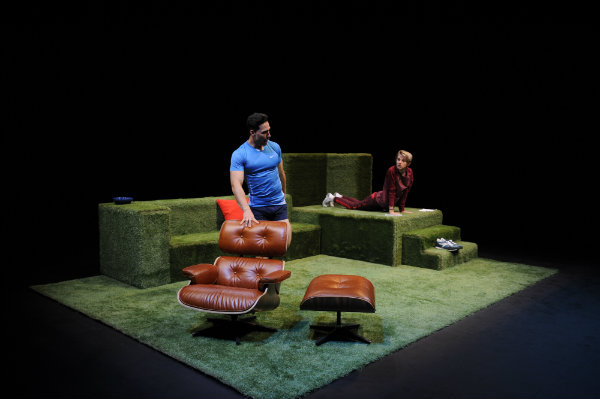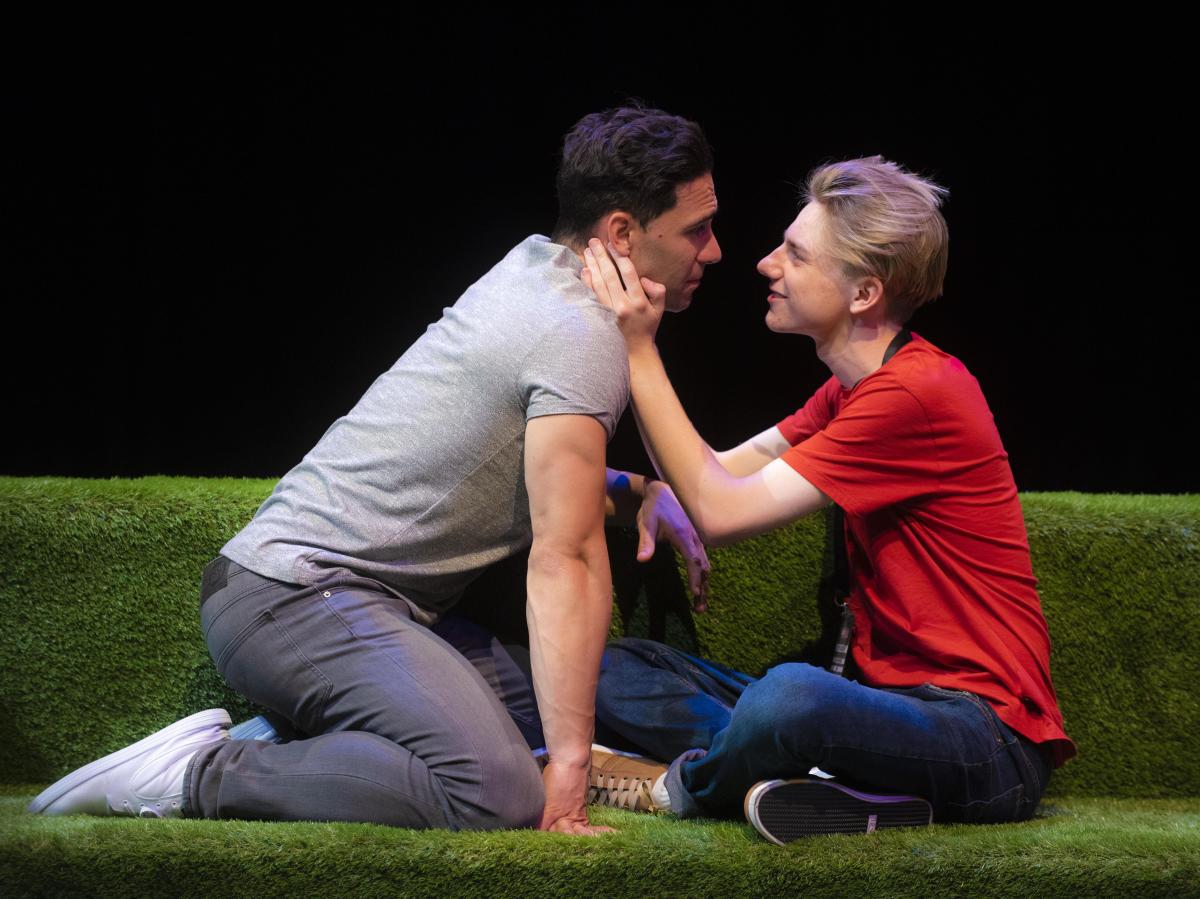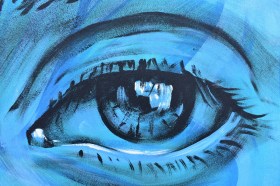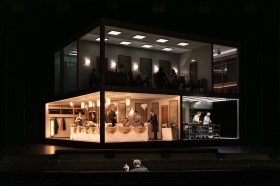Photo credit: Jodie Hutchinson
Become the One is a story we have never seen or even heard of but which would, surely, exist.
Penned by emerging playwright Adam Fawcett, winner of the 2018 Midsumma Playtime Staged Readings Event for new queer writing, co-produced by LAB Kelpie and Gasworks and premiering at the Midsumma Festival, Become the One depicts the passion and frustration of the ‘forbidden’ romance between Tom (Chris Asimos), an established AFL star, and his sensitive younger partner, Noah (Henry Strand).
The play develops around the couple’s budding romance and ongoing partnership by focusing on their shared domestic life. Following a flirtatious first meeting when Noah is contracted as Tom’s cleaner, the two soon start cohabiting and indulging in teasing pillow talk, bubbling sexual energy, and happy moments, like knitting, together. The outside world peeps into their sanctuary through references to the media surrounding Tom’s athletic status, a point of tension resulting in climatic moments.
The playwright’s award-winning script is well executed by director Lyall Brooks, who maintains a lighthearted tone without downplaying the fact that the pair’s relationship plays out discreetly behind closed doors. For Noah and Tom, the freedom of their private nest is a double-edged sword as it contrasts the harsh realities of public space. With each passing scene, their love and patience for each other increasingly strains against external social threats.
Asimos and Strand’s visceral performances convey the giddiness of a couple in love versus the despairing trials experienced by same sex couples. The characters present stereotypes of femme and masculine queer men, only avoiding being overly archetypal by awareness brought by their portrayals. In this, their performances effectively juxtapose Tom and Noah’s differing expressions of gender and sexual identity with broad appeal.
Noah’s body language switches between flamboyant and unsettled while Tom maintains a confident disposition (hello, manspreading and power poses), a comment on their comfort with traditional gender roles and presentation of vulnerability. Frequent costume changes provoke fluidity and fracturing of their identities while also marking time and representing the influence of external events on the static set.

Photo credit: Jodie Hutchinson
Based in the lounge room of Tom’s upper-class property, the set has a homely appeal as well as the ability to advance underlying themes. The furniture made of synthetic grass perpetuates the omnipresence of Tom’s profession. A leather chair is evocative of a psychologist’s office and correlates with the therapy-like dialogue of Tom and Noah’s honest conversations as they navigate social troubles afflicting their relationship and individual identities. Domestic intimacy is consistently evoked through beers, flowers and cheese platters, counteracted by keys and bags indicating the comings and goings from their refuge, reminding us off the pressures of the outside world.
As the above elements evidence, the production is meticulously curated. This careful crafting, however, gives Become the One a rehearsed and scripted feeling at odds with the messiness of its emotional concept and bars it from reaching full capacity. Given its promising writing, performance and production, it will doubtless mature through further runs beyond this premiere season.
Overall, Become the One presents many layers, not limited to: the safety of the queer body within a sport glorified for its violence; developing gender and sexuality identities at the cost of social rejection; and the brutal compromising of incongruent personal, romantic, family and professional attachments.
Interestingly, these issues are left unresolved for the audience to contemplate. The production relies on its Australian audience’s pre-existing knowledge of the ALF’s systematic homophobia and toxic masculinity. As they empathise with the characters, they also have to sit with the flaws of this pervasive symbol of cultural identity. The unfinished narrative puts responsibility on them to question how can – or when will – masculinity, sport and diverse sexual identities co-exist?
Powerful due to its relevant social commentary, one can nonetheless hope the play doesn’t have a long shelf life, rendered a period piece once an AFL player or players eventually come out. Yet, as Become the One demonstrates, the compatibility between the queer relationship and the hyper-masculinity of sport has a convoluted and confronting journey ahead. As none of almost 800 AFL players currently listed openly identifies as anything but heterosexual, the doomed love story between Tom and Noah will play on repeat.
Become the One is a tragedy representative not only of queer athletes and their partners but of the Australian Football League’s persistence in modelling a repressive narrative of masculinity and heteronormativity to a nation.
4 stars: ★★★★
Gasworks Arts Park and Lab Kelpie present
Become the One
Written by Adam Fawcett
Directed by Lyall Brooks
Composition & Sound Design by Tom Backhaus
Lighting Design by Benjamin Morris
Stage & Production Management by Tanje Ruddick
Starring Chris Asimos & Henry Strand
Gasworks Arts Park, Albert Park
31 January – 9 February 2019





